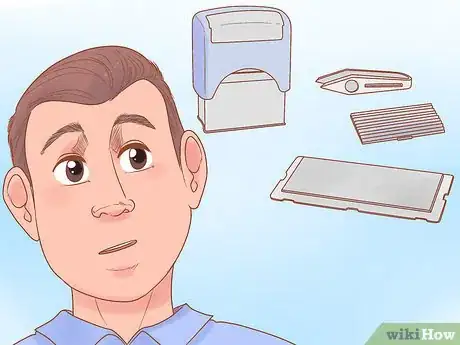This article was co-authored by Sean Alexander, MS. Sean Alexander is an Academic Tutor specializing in teaching mathematics and physics. Sean is the Owner of Alexander Tutoring, an academic tutoring business that provides personalized studying sessions focused on mathematics and physics. With over 15 years of experience, Sean has worked as a physics and math instructor and tutor for Stanford University, San Francisco State University, and Stanbridge Academy. He holds a BS in Physics from the University of California, Santa Barbara and an MS in Theoretical Physics from San Francisco State University.
There are 8 references cited in this article, which can be found at the bottom of the page.
wikiHow marks an article as reader-approved once it receives enough positive feedback. In this case, 84% of readers who voted found the article helpful, earning it our reader-approved status.
This article has been viewed 86,065 times.
It’s a part of reality that some things are more difficult to understand than others. Tackling a subject or question that you can’t seem to wrap your mind around can be hard sometimes. Luckily, even very complex concepts can be understood if you work at them. By being honest with yourself and implementing various problem-solving strategies, you can make it easier for yourself to understand a variety of different things.[1]
Steps
Getting More Information
-
1Ask yourself what it is that you don’t understand. You’ll want to pinpoint what it is that you don’t understand so that it will be easier for you to address the root of your confusion.[2] Ask yourself what specifically confuses you about the issue and try to narrow down where in your thought process the misunderstanding is occurring.[3]
- For example, if you’re confused about how a compass works, ask yourself what aspect of the compass confuses you: the needle’s spinning, the earth’s magnetic field, or how that magnetic field causes the needle to move in a certain direction.
- You might ask questions that align with the 5 W’s: who, what, when, where, and why (e.g., when in this multi-step process does something happen that confuses me?).
-
2Be willing to ask for help. It’s important to recognize that there are some things you may not be able to understand on your own. In that case, be willing to ask for help from someone with more expertise or simply with a different perspective.[4]
- If you’re embarrassed about asking for help, remind yourself that it’s probably more important that you fully understand something than it is to be entirely independent. Remember, everybody asks for help at some point in their lives!
- Being humble about what you know and don’t know will also help motivate you to learn new things and will keep you motivated when you run into difficulties.[5]
- Admitting that you might be wrong may be difficult at first. If you have trouble with this, start by asking someone you trust (e.g., a close friend) to help you identify areas where you might be mistaken.
Advertisement -
3Write down the things you do understand about the topic at hand. You may find it helpful to write out the things you DO understand about the problem and use this to better identify where the gaps are in your understanding. Writing these things down will also take them off your mind and allow you to concentrate on the things you DON’T understand.[6]
- Noting the things you understand is also a good way to remind yourself that you don’t completely misunderstand the subject. Use this method to motivate you when you doubt your own capabilities!
Working to Better Understand Something
-
1Take time to think about what you don’t understand. If you think about what is happening and what has happened, you should be able to work most issues out quickly and easily. When you find yourself confused, stop and give yourself 30-50 minutes to think through and ponder the question until you come up with an answer.[7]
- In most cases, when given all the necessary information, your natural human intellect should be able to understand even the most complex of ideas, given enough time.
- If you can’t come to understand something after an hour of thinking, you should probably consider reaching out to someone for help.[8]
-
2Write down your thoughts as you think through your question. As you think about what you don’t understand, your brain will be processing a number of different ideas and making lots of new connections. Write these ideas and connections down as you go to force yourself to articulate them in ways that are easier to understand.[9]
- Write down your thoughts by hand instead of with a laptop. You’re generally better able to identify important concepts this way.
-
3Approach the question from multiple perspectives to get a fresh look at it.[10] If you’re stumped by a problem, an issue, or a tricky concept, it may be helpful to change your focus or how you’re looking at it and see if you’re better able to understand it from a different perspective.[11]
- For example, if you’re having trouble understanding a scientific process by reading about it, consider adopting a kinesthetic learning method and studying the process through a physical experiment.
- You can also change the environment that you’re in to try and change how you think about a problem. Consider going for a walk, relocating to a different learning area, or simply turning on more lights around you to refresh your brain.
-
4Break down what you don’t understand into smaller components. It’s always easier to learn or understand simple ideas and concepts than it is to understand grand theories and schemes. Break down whatever you’re having trouble understanding into its smaller components and work on understanding one component at a time.[12]
- For example, if you’re having trouble understanding how a certain machine (e.g., a car) works, try breaking it down into smaller components and learning how each of those works (e.g., the carburetor, the transmission, etc.).
- This will also help you to not feel overwhelmed by whatever you’re misunderstanding.
-
5Try teaching the issue to someone else. If you’re misunderstanding something because you don’t have a solid grasp of the finer details, consider trying to teach the subject to another person. This will force you to explain every aspect of the subject and may help you to get a clearer picture of how it works.[13]
- If you approach a problem for the purpose of explaining it to someone else, your brain will engage in more effective learning strategies and focus on organizing the most important elements into a coherent structure.
- If you find you’re unable to teach something due to your own misunderstanding, this method may also help you to zero in on what exactly you don’t understand and help you think through it more effectively.
Increasing Your Capacity for Understanding
-
1Learn something new every day. No matter how much you know or understand about the world, there’s always something more to be learned. Be open to continuing your education each day to increase your knowledge and maintain a willingness to develop new understandings.[14]
- Consistently learning new things will not only lead to you knowing more and more things, but will also continually remind you of how much you don’t yet know. This will keep you motivated to continue your daily education.
-
2Meditate daily to develop inner awareness. Meditation allows you to examine the inner workings of your mind without reacting to it. It’s thus a great way to learn more about how your mind reacts to new information and how you can be more open to novel ideas and experiences.[15]
- For example, through meditation, you may be better able to identify your “inner critic” and how self-doubt keeps you from reaching your full intellectual potential.
-
3Get enough sleep and exercise daily. Studies have shown that getting regular physical exercise and staying well-rested have significant impacts on people’s ability to take in new information. Keep your body in good physical condition to keep your mind in similarly good condition.[16]
- You should aim to get 8 to 9 hours of sleep each night and to exercise at a moderate intensity for 30 minutes 5 times a week.
-
4Keep an open, imaginative mind. You won’t be able to understand new ideas or complex concepts if you’re not willing to expand your horizons. Keep your mind open to new problem-solving techniques, new brainstorming skills, and new ways of looking at the world.[17]
- If you’re unsure how to make your mind “more open,” consider changing up an established part of your normal work routine or reading a book that challenges one of the ways you think about a certain subject.
Expert Q&A
Did you know you can get expert answers for this article?
Unlock expert answers by supporting wikiHow
-
QuestionHow can I understand a difficult concept?
 Sean Alexander, MSSean Alexander is an Academic Tutor specializing in teaching mathematics and physics. Sean is the Owner of Alexander Tutoring, an academic tutoring business that provides personalized studying sessions focused on mathematics and physics. With over 15 years of experience, Sean has worked as a physics and math instructor and tutor for Stanford University, San Francisco State University, and Stanbridge Academy. He holds a BS in Physics from the University of California, Santa Barbara and an MS in Theoretical Physics from San Francisco State University.
Sean Alexander, MSSean Alexander is an Academic Tutor specializing in teaching mathematics and physics. Sean is the Owner of Alexander Tutoring, an academic tutoring business that provides personalized studying sessions focused on mathematics and physics. With over 15 years of experience, Sean has worked as a physics and math instructor and tutor for Stanford University, San Francisco State University, and Stanbridge Academy. He holds a BS in Physics from the University of California, Santa Barbara and an MS in Theoretical Physics from San Francisco State University.
Academic Tutor
-
QuestionHow can I understand what I am reading?
 Community AnswerFollow the methods in Understand What You Read.
Community AnswerFollow the methods in Understand What You Read.
Warnings
- If you're confused about serious matters or about your personal health, it is best to talk to a GP and/or a counselor. You may need more professional advice.⧼thumbs_response⧽
References
- ↑ Sean Alexander, MS. Academic Tutor. Expert Interview. 14 May 2020.
- ↑ Sean Alexander, MS. Academic Tutor. Expert Interview. 14 May 2020.
- ↑ https://www.inc.com/quora/5-lessons-most-people-learn-way-too-late-in-life.html
- ↑ https://www.forbes.com/sites/forbescoachescouncil/2017/09/15/why-asking-for-help-is-a-strength-and-three-ways-to-do-so-effectively/
- ↑ Sean Alexander, MS. Academic Tutor. Expert Interview. 14 May 2020.
- ↑ https://www.fastcompany.com/3063173/six-brain-hacks-to-learn-anything-faster
- ↑ https://www.fastcompany.com/3063173/six-brain-hacks-to-learn-anything-faster
- ↑ Sean Alexander, MS. Academic Tutor. Expert Interview. 14 May 2020.
- ↑ https://www.fastcompany.com/3063173/six-brain-hacks-to-learn-anything-faster
- ↑ Sean Alexander, MS. Academic Tutor. Expert Interview. 14 May 2020.
- ↑ https://oedb.org/ilibrarian/hacking-knowledge/
- ↑ https://www.fastcompany.com/3051781/try-these-5-steps-for-learning-new-skills-faster
- ↑ https://www.fastcompany.com/3063173/six-brain-hacks-to-learn-anything-faster
- ↑ https://www.entrepreneur.com/article/304731
- ↑ https://www.livescience.com/59349-knowing-yourself-helps-your-understand-others.html
- ↑ https://www.entrepreneur.com/article/304731
- ↑ https://www.entrepreneur.com/article/304731
About This Article
If you need to better understand something, think about the problem and pinpoint exactly what it is you don’t understand. If you know someone who is knowledgeable about the subject, ask them questions that will help you get clarity. You can also read books or look online to learn more about the subject. Once you think you have a grasp on the topic, try teaching it to someone else. This will show you if there are any gaps in your knowledge. For tips on increasing your ability to understand things, keep reading!








































































